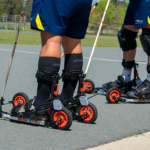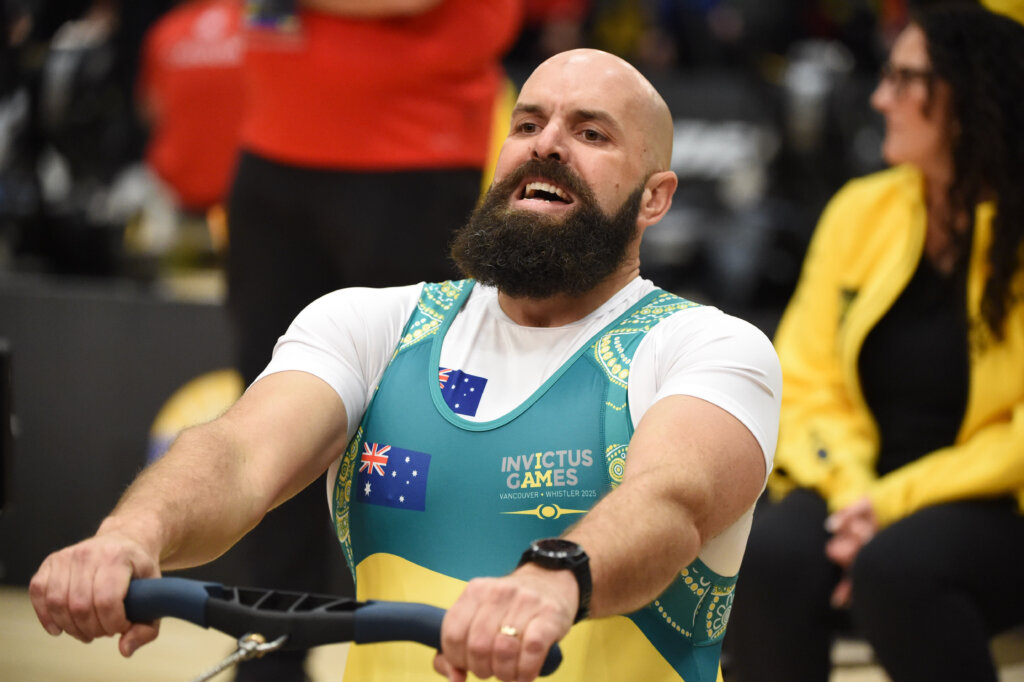
Team Australia Ends Invictus Games on a High Note with Indoor Rowing
The final day of the Invictus Games Vancouver Whistler 2025 saw Team Australia wrap up their impressive campaign with the highly anticipated Indoor Rowing event. For many on the Team, this was not just a competition but a chance to show how sport has been instrumental in their rehabilitation and recovery journey, especially for recently transitioned veterans Danny Giles and Torben Louwen-Skovdam.
The Power of Sport in Transition
Danny and Torben have both recently transitioned out of the military and have found immense value in incorporating sport into their post-service lives.
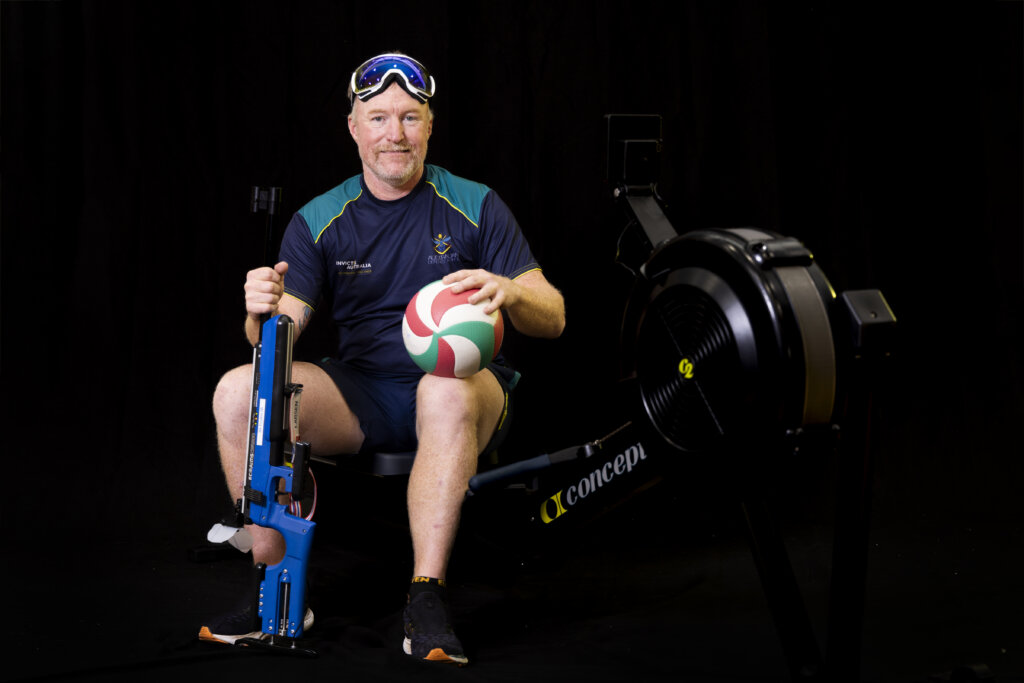
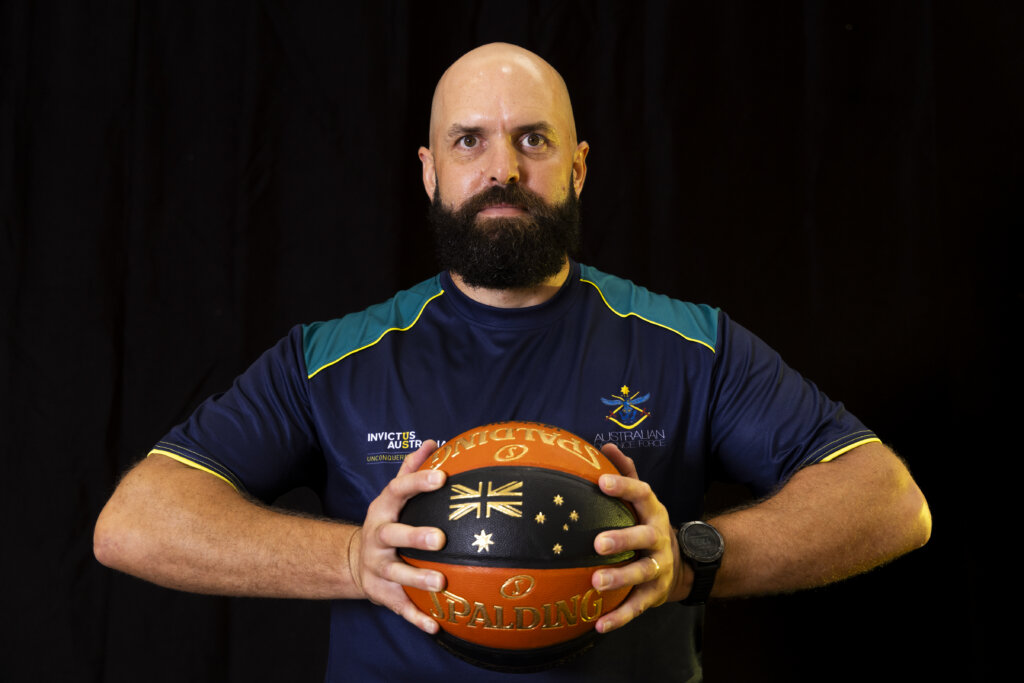
Before discharging last year from the Defence Force, Danny did not think he would be able to participate in sport, let alone at this level, especially given his long-term physical injuries and chronic pain.
According to him, his journey to the Invictus Games has reignited his passion for sport, which he has loved his entire life “Sport has been a big part of my transition from Defence. I have always enjoyed and competed in various team sports as a kid. During my career, I didn’t play as much sport as I liked due to my service commitments but always had the desire.” Danny continued:
The Adaptive Sports Program and Invictus Games have allowed me to reconnect with sport and given a focus to help me navigate to my next chapter in life.”
Torben echoed similar sentiments, emphasising the critical role that sport has played in his rehabilitation and mental wellbeing.
After a 16-year career as a Logistician, Torben was medically discharged from the Army in July last year with anxiety, depression and Post-Traumatic Stress Disorder (PTSD). Despite loving sport, competing in cricket, golf, basketball and AFL at different stages of his life, he began to “withdraw further and further into [his]self as [his] mental health deteriorated.”
This was one of the reasons Torben applied for the Invictus Games in the first place, which he says has helped him immensely post service: “Having only transitioned in July 2024, training for the Invictus Games has helped hugely in keeping me actively engaged with training and rebuilding my daily routine, which fell apart after a substantial period of medical leave prior to transition.”
He continued, “The program has helped me build a network of support around me and helped me re-engage in the community. It helps keep me grounded, content, and motivated and ready to take on each day with a positive outlook.”
Discovering Indoor Rowing
While Danny and Torben had different levels of experience with Indoor rowing, the pair had never considered it a competitive option until the Invictus Games. Since then, they both have fully embraced the sport. Danny noted, “Rowing has never been on my radar as a sport to compete in. I was given the opportunity to compete in the rowing events at the Games and I wanted to give it a go to see how I might stack up. My favourite thing about rowing is that it’s low impact, so it suits my body and rehabilitation.”
Torben couldn’t agree more, “I’d occasionally use rowers during gym sessions, but never thought of indoor rowing as an independent sport prior to attending the Invictus Australia selection camp in August 2024. What I have enjoyed most about training for the Indoor Row is that it has provided me with an avenue to rebuild my cardio fitness over a period where I have been unable to run due to injuries,” he said.
Stellar Performances: Results from Indoor Rowing
Danny and Torben both delivered exceptional performances, pushing themselves to their limits and achieving personal bests. Their dedication and hard work culminated in standout results, underscoring the transformative power of sport in their lives. In their 4-minute endurance row, the pair proved that it is mind over matter, with Danny rowing 1170m and Torben clocking in 1182m. When it came time for the 1-minute sprint, Danny and Torben were fast out the gate, rowing 349m and 350m respectively.
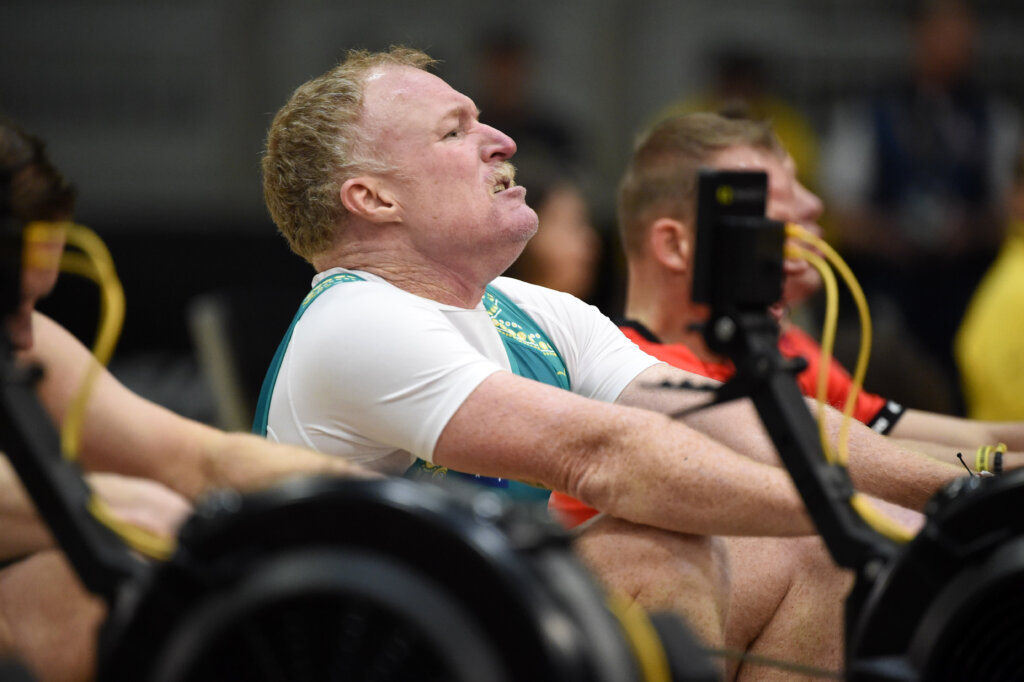

Team Australia as a whole delivered an outstanding performance in the Indoor Rowing event, showcasing their strength and determination. Whether it was smashing a PB, like Alex Hale during the 4-minute endurance row, or picking up as gold medal like Adam Jackson, Jo Lovell and Sue Osborn, Team Australia’s rowers are happy to be leaving Canada with lasting memories and new connections formed.
Competitor Alex Hale reflected: “I came in today to get a personal best, and I beat that by about 15m so feeling pretty happy.”
Picking up a silver medal in the 4-minute endurance event, competitor Katie Chapman felt every second during her race, “the longest four minutes of my life.”
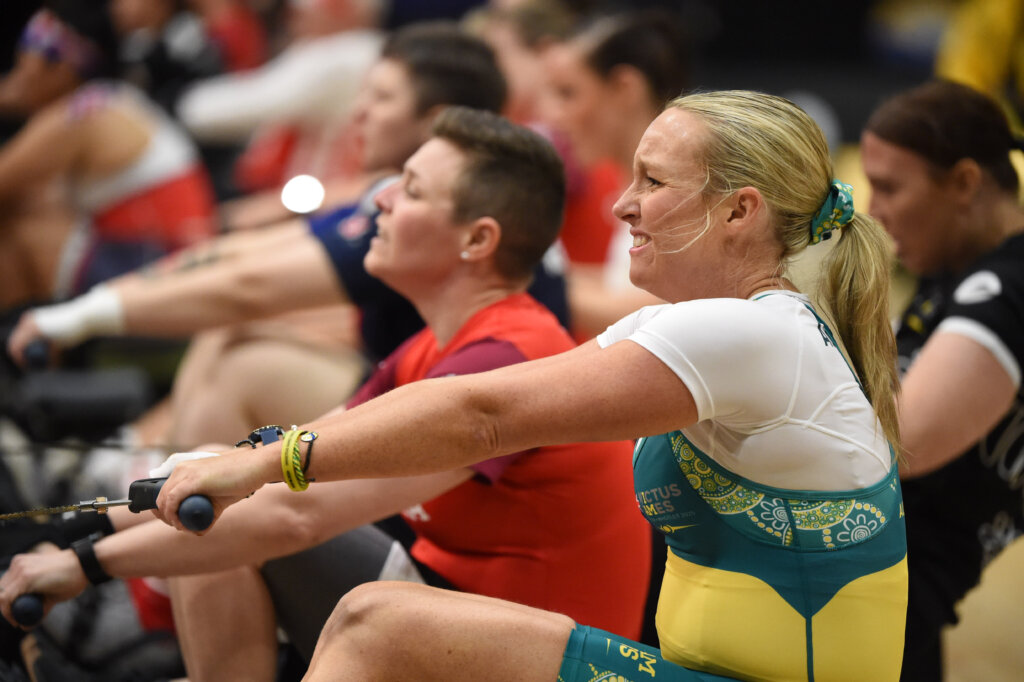

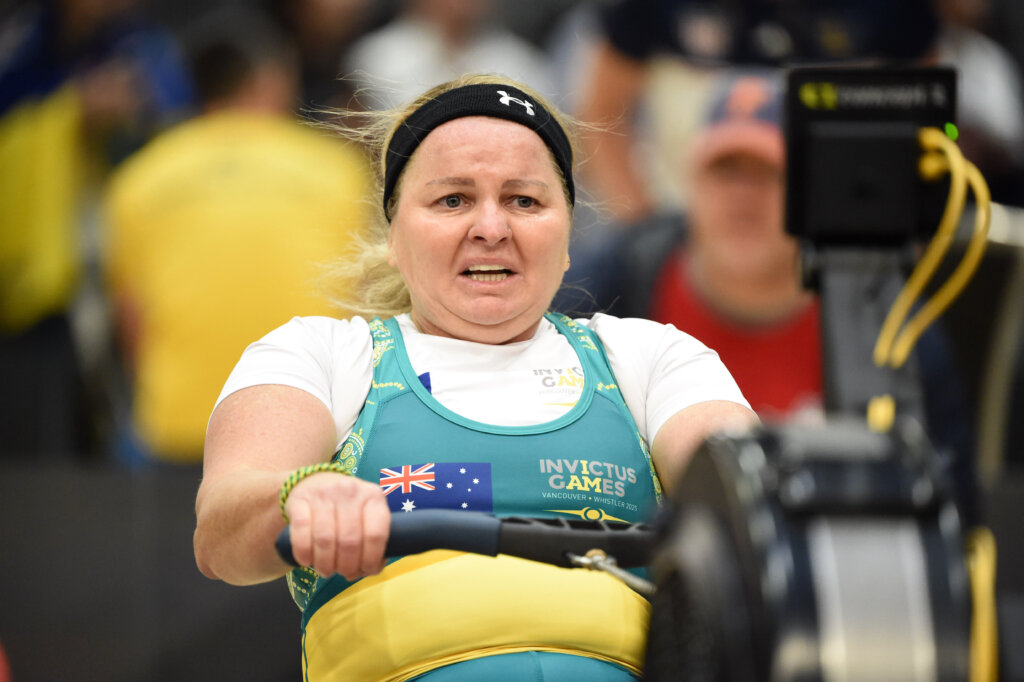
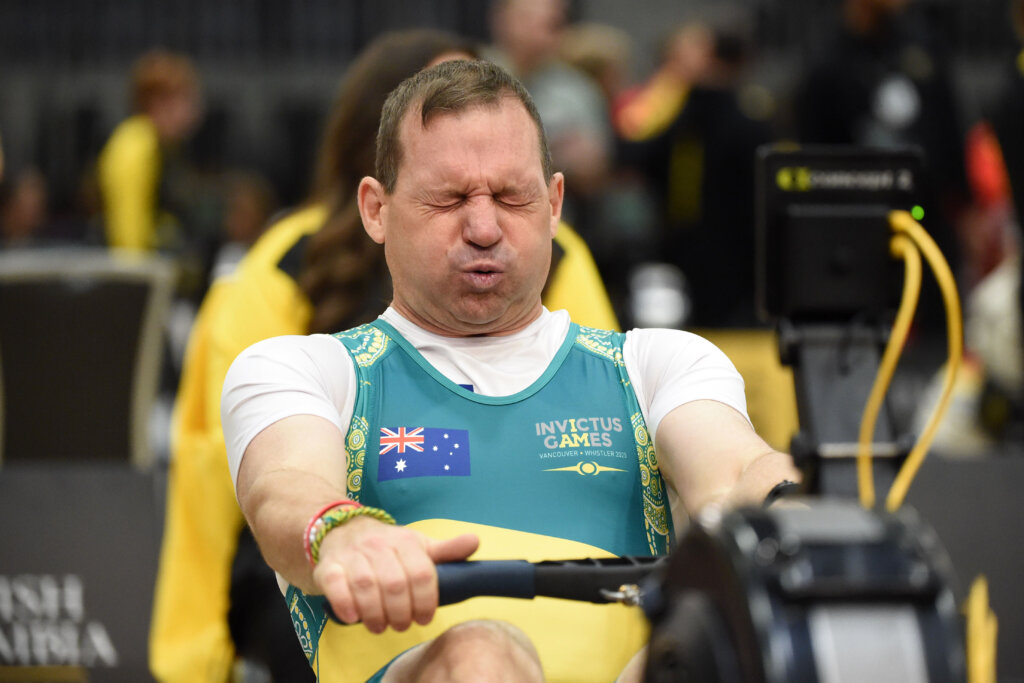
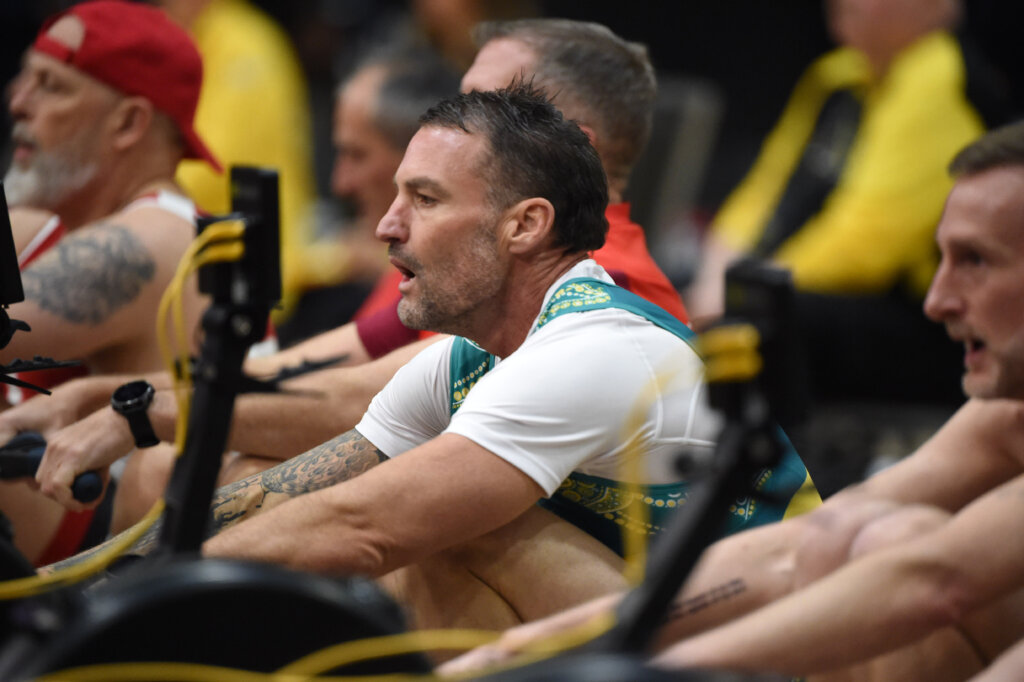
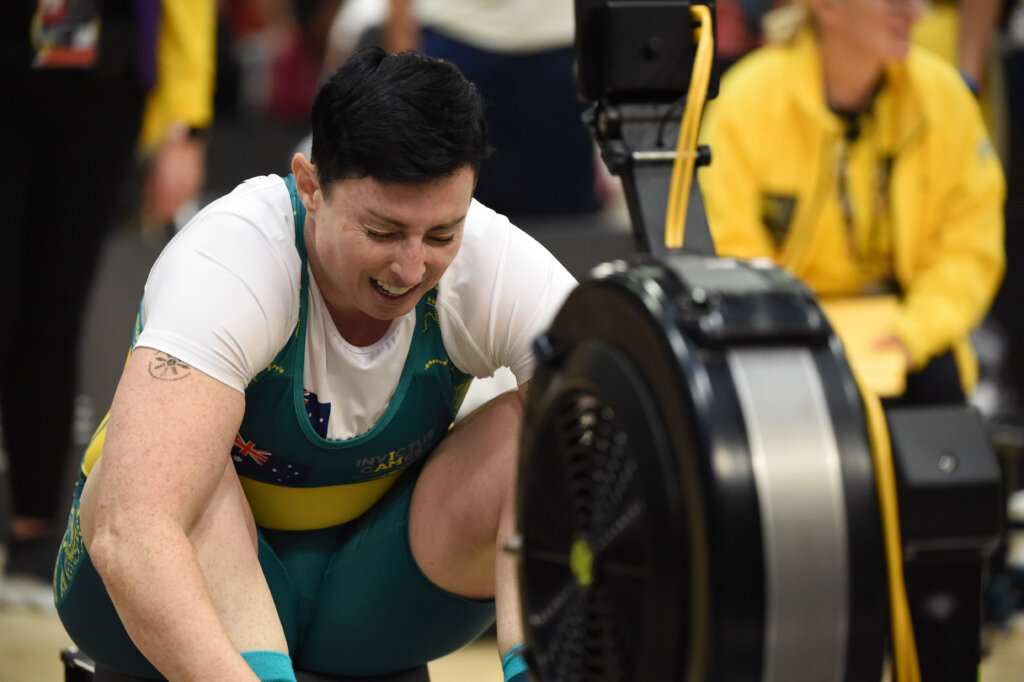
For a full list of results, head to the Team Australia Hub.
Looking Ahead: Sport Beyond the Games
The impact of the Invictus Games extends well beyond the competition. Both veterans plan to continue utilising sport as a key component of their ongoing rehabilitation and overall wellbeing. Danny shared his post-Games plans, saying, “I will continue to row post games as I have found some real benefit in keeping the body fit and in motion without the impact. It is a simple way to stay active and motivated. My family like getting on the rower as well; it is a good bonding session for us all to develop a friendly competitive family activity.”
Torben also expressed a commitment to staying active through sport, recognising its role in maintaining physical health and mental resilience, allowing him to be there for his loved ones. “Post the Invictus Games, it’s about maintaining my daily routine and training and taking those small moments for self-care so that I can be there to support those who have supported me so much on this journey,” he explained.
With the Games now behind them, both veterans look forward to continuing their involvement in adaptive sports, staying connected with the supportive community they’ve found, and inspiring others through their resilience and determination.
The Invictus Games is an international, adaptive multi-sports competition for serving and former military personnel who have been wounded, injured or become ill during their military service. Team Australia is delivered in partnership between Invictus Australia and the Australian Defence Force, and consists of 33 competitors.
To receive daily updates about the Invictus Games, sign up to this enewsletter.
Keep up to date with all the action
Read live updates from Canada, get to know Team Australia and learn how to connect through sport in your local community via our Team Australia Invictus Games 2025 hub. Head to the hub below.
#TEAMAUS Invictus Games 2025 hub
Join the Exclusive Team Australia fan club!
Want behind the scenes access to Team Australia, plus exclusive updates of all things Invictus Games? Join our Broadcast Channel via the Instagram app to cheer on Team Australia from back home, while never missing a minute.
If you don’t want to miss a moment of the Games, join us on Instagram, Facebook, LinkedIn and Twitter, where our on the ground team will be keeping you up to date on Team Australia.
About Invictus Australia: Invictus Australia encourages veterans and their families to connect and engage with their communities through sport. Whether participating or volunteering at grassroots level, to competing internationally at an Invictus or Warrior Games, Invictus Australia leverages the power of sport to proactively foster good health and aid in recovery, rehabilitation and reintegration. Invictus Australia promotes the physical, social and emotional benefits of sport for all, and shine a light on the unique needs of younger veterans, particularly the challenges associated with transitioning from military to civilian life.



